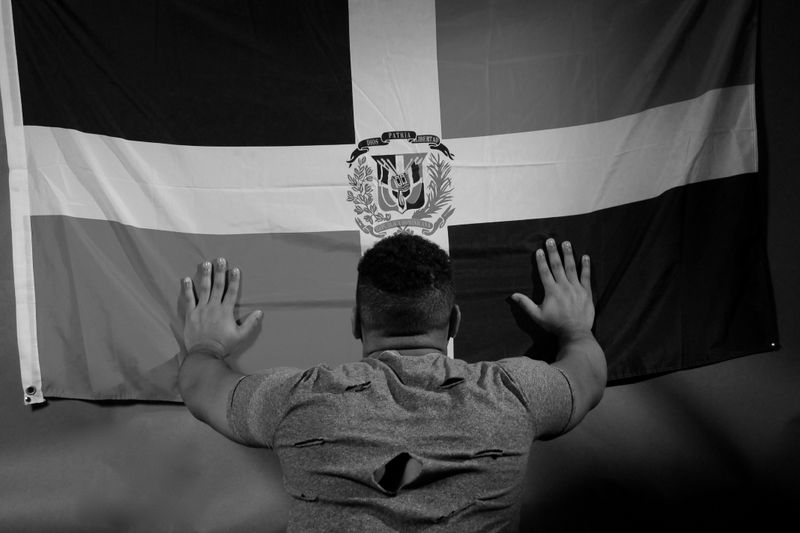We Are America
Journey to Heaven
By Ezequiel

Lowell High School, Lowell, Massachusetts
From an early age, I heard many stories about the United States. Stories like how the U.S. was heaven on earth, how there was total equality, how there was literally money in the streets, and how there were only white people.
I was born and raised in Santo Domingo in the Dominican Republic, a place where poverty and misery are more common than water. There are only a few hours of electricity, my streets were often filled with gangs, and corruption was common. But growing up, these issues seemed normal. I didn’t question them. My family and I immigrated to the U.S. when I was 13. Surprisingly for me, the country I had pictured in my mind was far from the reality. I faced discrimination in school, I saw that for many it seemed like equality was just a dream, and sadly there was no money in the streets. At first I felt like this couldn’t be my home. But what stood out to me most was how diverse my new community was. Growing up in the D.R., I had only ever been around Dominicans. But here, it was fascinating to see the beauty of so many cultures. In my school, there were people from all over: Iraq, Cambodia, Japan, Italy, Portugal, Kenya, Egypt, Colombia, El Salvador, and many more. It was the complete opposite of what I had expected. In the D.R., you had to be a certain type of person to be accepted, but here everyone seemed to find acceptance. And in seeing this, I realized that I had never fully felt accepted before. This gave me an incredible sense of belonging.
I also started to see the challenges that my community here and in the D.R. shared: inequality, poverty and discrimination. But here I learned that I had an opportunity to speak out about issues that might affect our community. I didn’t have a voice in the D.R., but here I did. I wanted to use my voice, so as a senior I decided to take a seminar on American Diversity. In class we studied everything from the civil rights movement and segregation to LGBTQ history, women’s suffrage, and religious tolerance and discrimination. We examined laws addressing violence against women, systemic poverty, and pay equity. We learned about policies that affected Native Americans and those that affected immigrants. We read about heroes like Dr. Martin Luther King Jr., Bayard Rustin, Cesar Chavez, Ruth Bader Ginsburg, Marsha P. Johnson, and Darius Weems.
This winter our class traveled to Montgomery, Alabama, a city with a terrible history of oppression. Over a weekend, we visited historical places connected to the civil rights movement. Dr. Martin Luther King Jr.’s house and his church, a museum about the Freedom Riders, another about Rosa Parks, another about the history of slavery. We visited a memorial remembering more than four thousands victims of racial terror lynching. We also visited places of hate, a statue of Jefferson Davis, the president and former leader of the Civil War Confederacy, and the first White House of the Confederacy. Over the weekend we learned, as the civil rights lawyer Bryan Stevenson advocates for, the importance of getting close to better understand the important things.
Being around these spaces of oppression made me fear for my safety. I felt uncomfortable as a dark-skinned man walking around the city. I was angry. I couldn’t understand how people oppress others like that. Returning to Lowell, I realized that I had taken for granted how loving, accepting, and beautifully diverse my community is. It felt so different, so much safer. I realized how Lowell is home for many marginalized people. All find a home in this city.
Maybe I found heaven after all. Heaven doesn’t need to be a perfect place where there aren’t problems. But heaven for me is a place where I feel safe, loved, and accepted. This is my heaven.
© Ezequiel. All rights reserved. If you are interested in quoting this story, contact the national team and we can put you in touch with the author’s teacher.